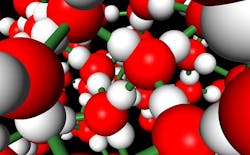Amyris to help DARPA develop new biological materials for specialized military applications
Officials of the U.S. Defense Advanced Research Projects Agency (DARPA) in Arlington, Va., announced a $34.2 million contract to Amyris on Tuesday for the DARPA Living Foundries program.
Amyris engineers will seek to create a revolutionary, biologically based technology platform to provide new materials, capabilities, and manufacturing paradigms for the U.S. military.
Five other research organizations are working on the DARPA Living Foundries program: Twist Bioscience Corp. in San Francisco; University of Illinois in Urbana, Ill.; Regents of the University of Colorado in Boulder, Colo.; Massachusetts Institute of Technology (MIT) in Cambridge, Mass.; and the University of Texas in Austin, Texas.
Related: Engineered by nature: UAV designs modeled after biological sources
The Living Foundries contractors are helping DARPA as it seeks to create a first-of-its-kind infrastructure composed of tools and processes that help with innovation across several applications, and to help push biotechnology forward. The infrastructure will include design algorithms, genetic integration methodologies, and flexible assay systems.
The organizations each are involved with creating one of several research centers, each of which will try to produce at last 350 unique molecules of relevance to DOD that will augment today's limited set of chemical building blocks.
Biologically produced molecules are more useful than traditional approaches, DARPA researchers say. The rapid design and prototyping infrastructure should bridge the gap from initial, laboratory-level, proof-of-concept experimentation to industrial pilot production.
Key technical areas of the program include computers to link component technologies; design tools to engineer novel biosynthetic pathways, gene cluster discovery, and chemical structure prediction; methods for automated construction of genetic designs; design evaluation tools to enable massively parallel testing, analysis, validation, and verification of engineered systems; and feedback tools with high-volume data generation.
Ultimately, rapid design and prototyping facilities should consist of computational and physical infrastructure supporting design, fabrication, validation and quality control, and analysis, the totality of which should be tightly coupled to algorithms for design and processing.
DARPA Living Foundries has three challenge areas: rapid, improved prototyping of known molecules; prototyping of known, but currently inaccessible, molecules; and prototyping of novel molecules.
On this contract Amyris will do the work in Emeryville, Calif.; Santa Clara, Calif.; Seattle.; Billerica, Mass.; Baesweiler, Germany; and Heidelberg, Germany, and should be finished by October 2019.
For more information contact Amyris online at https://amyris.com, or DARPA at www.darpa.mil.
